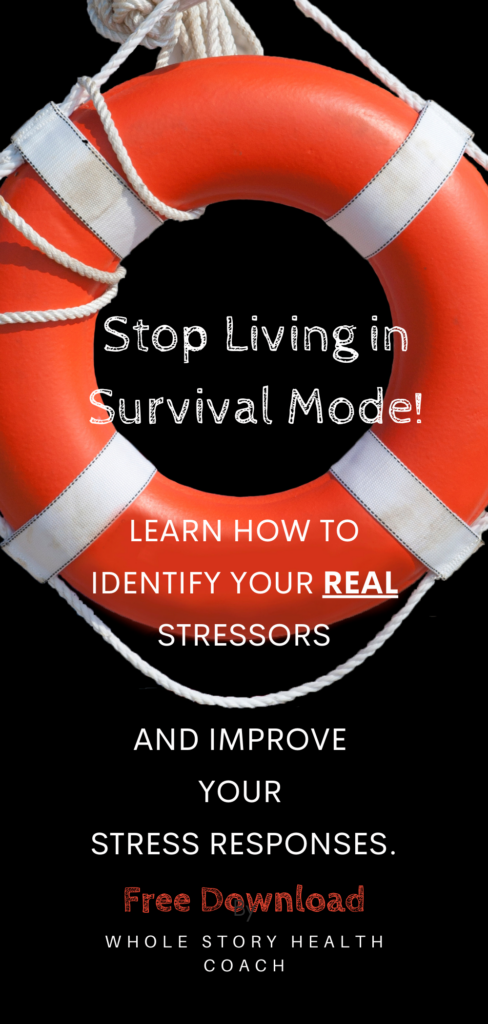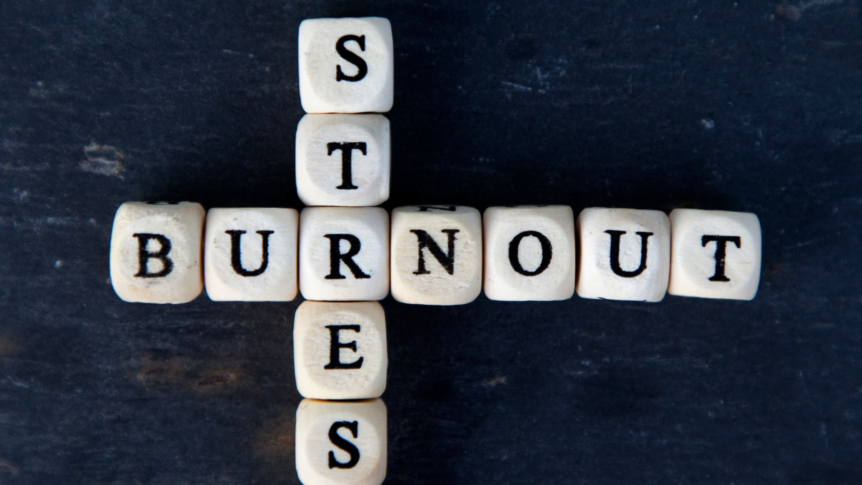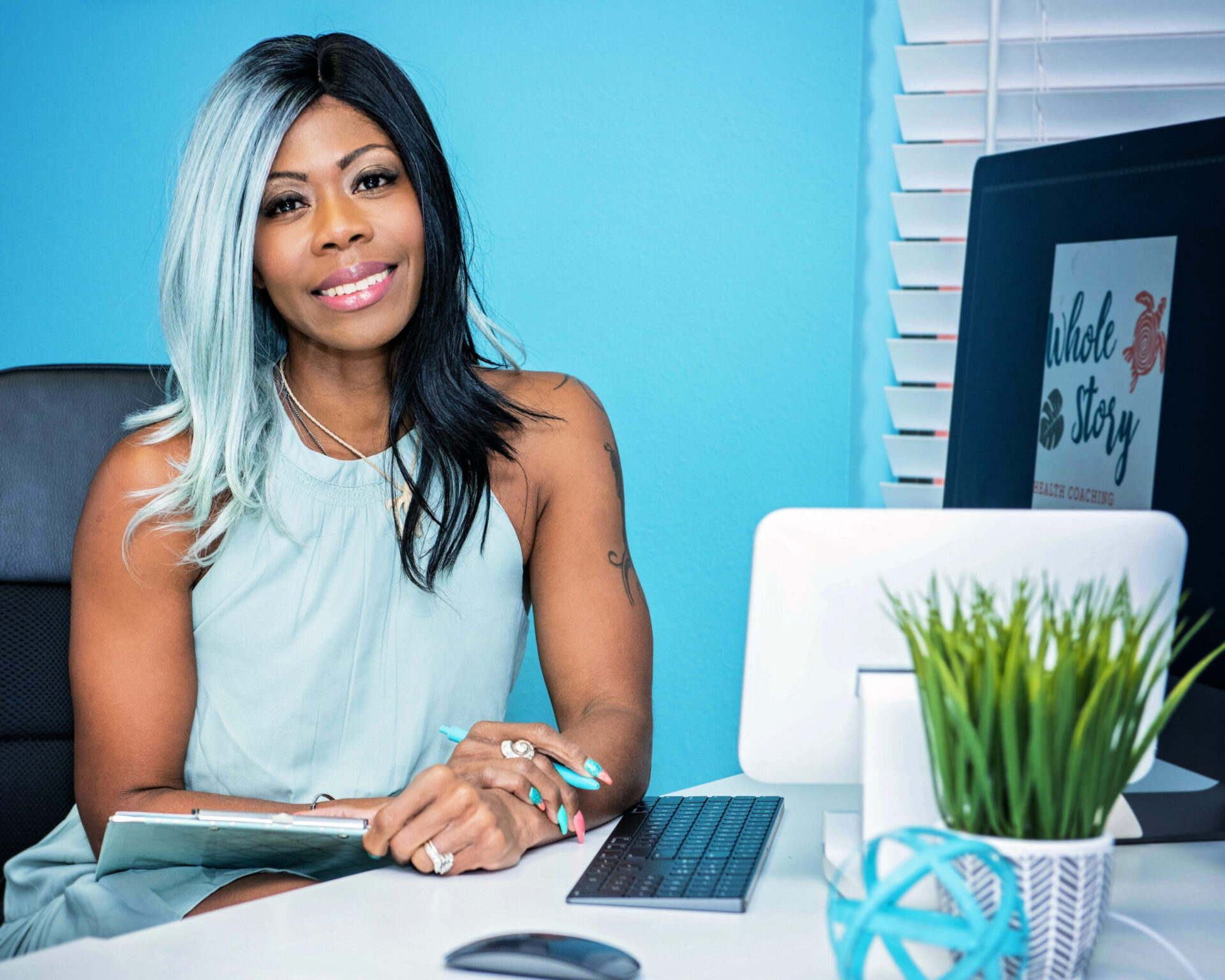Stress is an unavoidable reality that we all face— and uncontrolled stress is a major contributor to the physical, mental, emotional, and spiritual ruts many find themselves in.
Recognizing our individual responses to stress (before they become overwhelming) is our greatest defense against living a life in survival mode.
When we don’t properly address our stressors, there will be consequences that we will not be able to ignore.
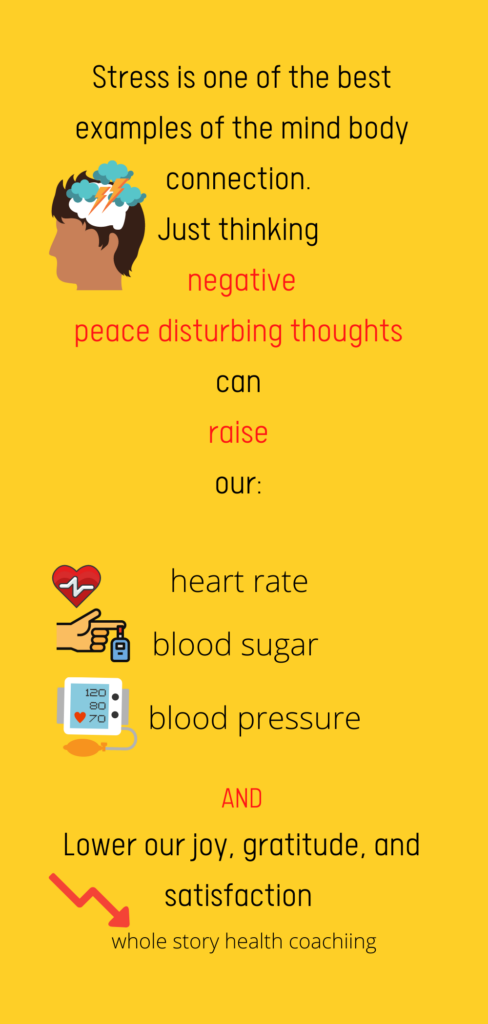
Personal Stress Strategies
Stress is personal and everyone responds differently. For example, some people :
- become accustomed to it
- deny its existence
- avoid it
- recognize it
- deal with it
- learn to channel their energies in healthy ways
The way to truly gain control over stress is to acknowledge it and begin to develop a plan that is right for us and fits our particular lifestyle, abilities and values.
One strategy that works for me is a daily (therapeutic) brain dump.
On many occasions, dictating my thoughts into my journal app is my way of venting my stress, anxieties, and irritations.
In addition to actual therapy, it’s a fantastic way for me to process my experiences, and avoid becoming a slave to disregarded emotions.
Brain dumping into a journal also serves as a way to document and observe our behaviors.
By journaling , we can begin to recognize our patterns and challenge any irrational (stress-induced) thinking and responses.
What Can We Learn?
I am a firm believer in recognizing, acknowledging, and learning from our reactions to life —not lingering in them, internalizing them, or succumbing to them. When you are open, life is a classroom, and everything is a teacher.
–Char Aukland
Part of learning to extract lessons from the classroom of stress is admitting it.
Though some react with a sense of shame (as if stress is a weakness), we all experience it.
Some of us may handle it better than others—but none of us escape it. Acknowledging it and understanding the effect that it has on us is key in loosening its grip.
In learning to recognize the subtle signs of stress, we can tune into those cues and use them to gain insight into our inner world —which (normally) might be overshadowed by our reactions…like anger or anxiety.
We can then take that information and channel it into a process that allows us to develop healthier coping mechanisms.
First, we must learn to take the time to pause, breathe, and step back mentally and emotionally.
These integral aspects of the process take time and patience. Think of it as developing a mindful stress practice. Use the list below as a guide.
1. Determine the Reality
Since many stressful interpretations are actually rooted in (and colored by) past experiences, being able to the separate facts from our triggers is important.
One of the first things we need to do is determine is the reality of the stressor— with the understanding that not everything we interpret is based on the facts of that moment.
There will be circumstances and people that we react to — based on our unique combination of circumstances, background, and thinking patterns.
2. Implement Mindfulness
Once we react to a stressor, we trigger an irreversible (and potentially damaging) neurochemical chain of events.
For this reason, and to prevent the health crushing effects of chronic stress, we need to develop our ability to become mindful. Not only does it have long term benefits, but it also works in the moment. Still being researched, mindfulness has been shown to help a variety of conditions from heart disease to IBS.
But we can’t change what we don’t know exists.
When we learn to become mindfully aware, we start to take notice of the subtle mind-body cues brought on by stressful events. This especially important in understanding our hidden triggers and how to defuse them.
Mindfulness is a powerful weapon in our fight against living in survival mode— and ally in cultivating a more peaceful existence.
3. Monitor Your Mood
Our moods can come under attack from a variety of sources, including:
- hormone fluctuations
- external stressors
- underlying (inaccessible) thoughts
- errors in our thinking patterns
When we learn to observe our moods as a barometer for how we are responding to life’s challenges, we can begin to develop ways to intervene.
Often, a sudden change in mood is an early indicator that something is going on under the surface—even when we can’t put our finger on what it could be.
Monitoring the subtle changes in our moods and taking a closer look, before things get out of hand, can give us great insight into our inner world and the power to make the necessary adjustments.
4. Journal
Because we tend to write what we’re feeling and experiencing in the moment, journaling gives the advantage of not having to rely on memories (which can alter over time).
We gain knowledge about ourselves that would otherwise go unnoticed.
When I initially began journaling, it wasn’t to achieve a particular goal. It was just to get my words, thoughts, and feelings out into the atmosphere.
Over a period of a year, I noticed a pattern in what I was writing…and when I was writing it.
It became apparent that I was wrestling with unhealed wounds and issues from childhood.
These behaviors, thoughts, and moods were presenting themselves in my relationships, friendships and especially in the way that I looked at, cared for and treated myself.
Without journaling and re-reading what I’d written, I would have remained in the dark—and stuck.
5. Become Intentional
Life and stressors can be unpredictable. But, living with intention is something that is under our control.
It incorporates the understanding that comes from each of the other categories listed here.
Becoming intentional allows us to develop a course of action.
But only after becoming aware of the areas that are the weakest links (or the sources of our greatest obstacles).
Instead of being blown around like a leaf in the wind, we become active participants in the direction we want to go in.
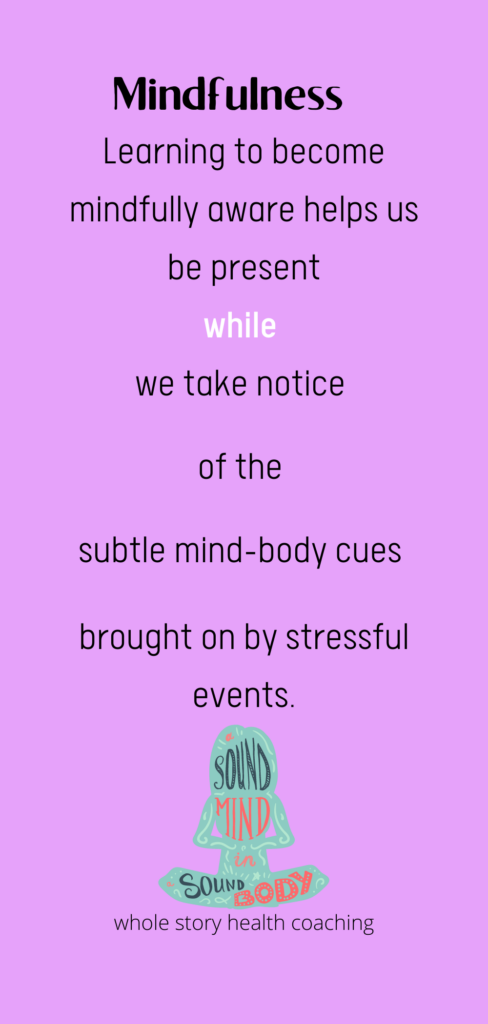
6. Self-help and Therapy
There are many wonderful books designed to help us navigate life, one of which I’ve written.
But there are times when self-help can only go so far.
During these seasons, finding a good therapist can be the best option. A trained and experienced mental health practitioner has tools that we, our books, nor our friends possess.
The key is in recognizing, and admitting, that we need help.
Because of the stigma associated with mental health and personal feelings of weakness, some shy away from this option… despite the potential long-term benefits.
Therapy or not, it’s useful to understand your reactions. In doing so, you give yourself the chance to plan intentional responses, instead of being a tiny boat tossed around in an ocean of stressors.
And though we can’t (and won’t) be prepared for everything that comes our way, we can learn how to be better prepared (and focus on) what we can have a positive impact on…like our stress responses.
